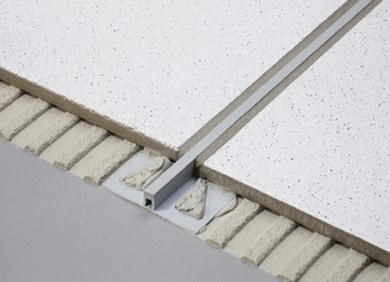

Duraflex Expansion Profile Range PDF
DURAFLEX “extra narrow" is a narrow expansion joint profile from Dural that has been developed chiefly for homes and offices that are not used by large numbers of people. The visible surface of the profile is only 5 mm wide. This means it is indistinguishable from conventional mortar joints. When loads act at a point, wide legs spread the load evenly throughout the flooring and the foundations. The extra narrow expansion joints are available in two versions, as an ordinary floor joint and for junctions with a wall. The heights of the profiles vary from 6 mm to 12.5 mm. DURAFLEX “extra narrow" profiles are laid using the thin-bed technique. Important: Any expansion joints in the foundations need to be followed precisely.
DURAFLEX “extra narrow" is made of hard-soft PVC, i.e. legs are made of coloured hard PVC. Available in grey.
Properties:mDURAFLEX “extra narrow" is resistant to UV exposure. The PVC-profiles are resistant to all kinds of chemical stresses that are usually experienced by tiles. Damage to the visible surface due to deformation or scratching is unlikely under normal circumstances.
However, their usage with regard to chemical and mechanical resistance should be assessed in each individual case.
DURAFLEX expansion joint profiles do not require any special maintenance. They are resistant to bacteria and fungus and are “automatically" cleaned when the tiles are cleaned. Cleaning agents should be free of hydrochloric and hydrofluoric acid and should not contain abrasives.